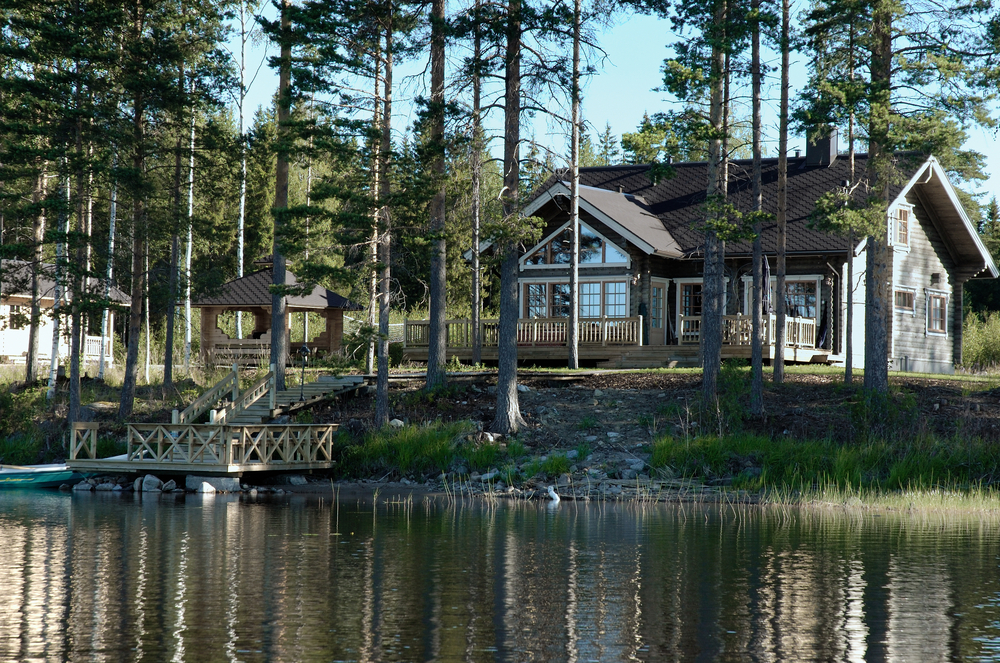Living on a prime piece of lakefront property is the dream of many. Opening your front door and being just steps away from the serene water draws many people to invest in property on the lake every year. However, just like with every type of property you may choose to invest in, there are some vital steps you need to take to ensure that you make a sound investment. Especially for lakefront properties, there are some unique factors you should be aware of before you sign on the dotted line.
1. Look at the survey and make sure there is no conservation easement on the property
Even though your property is private, the shoreline and lakefront is managed by several different government agencies such as Florida Fish and Wildlife, the Environmental Protection Agency and the county/city. They have the authority to deem any shoreline a conservation area as they see necessary. In Florida, there are thousands of designated conservation easements along the edges of water bodies and almost all lakes have at least one, if not more.
It is nearly impossible to get authorization to completely clear these areas even if they are blocking your million dollar view. The penalty for clearing it varies but it can run you up to thousands of dollars, not to mention the obligation to replant the area with large amounts of native vegetation as part of mandatory remediation.
Double check that there isn’t a conservation easement on your lakefront property before you buy it. Many easements prohibit you from setting up permanent structures or even things like fences. Some easements may prevent you from disturbing the natural environment as well and prohibit you from doing any major landscaping or remodeling.
Although conservation areas can be so limiting, don’t let this be a deal breaker. Most agencies will allow certain circumstances such as building a dock or clearing an corridor for recreational access to the lake. Each city/county has different regulations. Do a bit of homework by calling the specific agencies for the property or call a specialized lake service provider so they can guide you and inform you on what you can/can’t do.
To see if your property has a conservation easement, look at the seller survey. It will be delineated there.
2. Call the county to find out how much vegetation you can clear
Some counties require you to have a permit before you clear any vegetation while others may have a limit on how much you can clear. If there’s a possibility that you may want to remove vegetation at some point after you purchase the property, check with the county before you buy to see what the limits and requirements are.
Even if you’re not actively planning on clearing vegetation on the property, it’s always possible you may change your mind in the future so it’s best to check now before you’ve made the purchase.
3. Ensure that the property is not on violations with county/state shoreline requirements
Unfortunately, some property owners may have purchased/built their property in violation of local shoreline requirements. They may not be up front about it either, so check with county and state shoreline requirements and talk to a realtor about the possibility of the property violating them. If you purchase a property that is found to be violating laws and requirements, the fines will be high and you’ll be stuck paying them even if you aren’t responsible. Additionally, most counties will do frequent site visits several times per year to make sure the remediation took place
4. Do a water sample test as part of the appraisal
Living on a lake poses some additional risk. Lakes may have pollutants, infectious organisms or unstable amounts of organic matter that are not clear to the naked eye. Taking a water sample prior to purchasing the home will give you more insight as to what type of environment you will be exposing your family and pets to.
Additionally, the lake may be high on nutrients like phosphorus and nitrates that usually spark algae blooms during the summer. These are things that you may want to be aware of. The lake may look good right now but does it always stay this way? We recommend asking the neighbors about their experience in dealing with the lake and historical information. A lot of lakes in Florida have several nuisance species that overgrow or become a nightmare certain times a year and this significantly alters the amount of effort and maintenance the shoreline will require.
5. Understand the maintenance associated with a lakefront property
Lakefront properties are more exposed to the elements, so it’s likely your home will see more wind and rain damage. Not only will you need to pay to protect against these elements, you’ll have to be prepared to repair the damage done by them after a storm.
Additionally, most lakefront homeowners will have to undergo learning as far as the maintenance of the shoreline and the nuisance vegetation that overtakes them. Make sure you do your research and understand fully all the maintenance related to lakefront properties.
6. Call the experts to ensure that your vision can be brought to life
You might already have an idea of what you’d like your lakefront to look like. Before you assume that your ideas can be implemented, you first need to call in the experts to ensure that the location of the property, the type of sand and water will allow for your vision to come to life.
You can’t expect to create a white sandy beach if your lake soil has a mostly organic (muck) composition.
7. Ask about the vegetation on the lake
Most lake vegetation can be a nuisance and require high maintenance. You certainly don’t want to find this out after you’ve purchased the property, so remember to ask about it during the appraisal. You may save yourself a future headache.
Conclusion
Owning a lakefront property can be very rewarding, but it’s not easy work. Underestimating these factors can bring you major problems down the road. You’ll have to keep up regular maintenance and be prepared to go through some pretty rough storms sometimes. It can also be a pain to find an affordable property that checks all the right boxes. If you put in the extra work at the beginning to find a property that meets all the points above though, it’ll be worth it in the end. Don’t hesitate to call in lake restoration services experts like us to help you with your assessment of your lake so you can make a sound and informed decision on your purchase.

